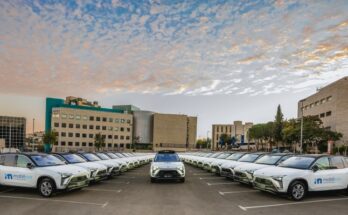[ad_1]
It's been a tough 18 months for startup founders who want to operate globally. Like many who travel overseas for business or pleasure, they likely have thousands of dollars in credit in their frequent flyer accounts and are wondering how far in the future it will be before they can redeem that money.
But life and business went on and many companies expanded rapidly despite the devastating lockdowns and border closings from Covid-19.
Startup Daily decided to ask several founders how they approached international expansion, even though they only met their offshore teams and investors via video call.
We asked them a series of questions about whether border closings have slowed or sped up their offshore plans, what it feels like to open an office through Zoom, address trust in employees you've never met, and how it was dealing with the world investors.
We wanted to understand what you think of building your startup in difficult times.
Here are your findings:
Gemma Lloyd
CEO and Co-Founder, Work180
Gemma Lloyd
We are still very focused on our growth in the UK and US – Covid-19 has not changed our expansion plans.
Women are hardest hit by the pandemic – it has made more women than men unemployed and raised awareness of the unfair burden women face at home – so our platform is more important than ever.
We see this as an opportunity to accelerate gender equality in the workplace and companies that really care are working with us to redouble their DEI initiatives.
One of the reasons we haven't been affected is that at WORK180 we only have remote workers with team members across Australia, the UK, and the US – we've never had a physical office.
The key to successful remote work and trust building in teams is communication and personal responsibility. As a leader, it's important to set clear expectations up front and then trust your teams to get the job done. As a team member, overcommunication can be a good thing – e.g. sending project updates out more regularly than usual.
We find that those who work best remotely are those who own their jobs and take pride in what they do.
My advice on expanding overseas really comes down to the same advice I would give to founders running remote teams. There is a direct link between diversity and inclusion with mental health and wellbeing, and because COVID-19 is so difficult for employees, that part of inclusion is especially important.
Companies that improve their DEI policies during COVID will see happier, more productive, and more engaged teams.
Remote work and flexible work also go hand in hand. Organizations that understand the benefits of teamworking remotely also know that supporting flexible working hours, enabling school runs or other non-work requirements, and allowing staff autonomy to increase productivity and loyalty.
Tim Fung
Co-Founder and CEO, Airtasker
Airtasker CEO TIm Fung
While home stay orders have impacted some service categories, our global community was really resilient during the pandemic as many local service providers innovated and adapted with virtual and remote solutions.
We have seen a trend towards these virtual solutions and greater demand from local service providers. In the past 6 months, nearly 10,500 Brits have joined as service providers, with registrations in July up 369% from February 2021. With the reopening of London, we expect this growth to continue.
Following a capital increase of US $ 20.7 million and our acquisition of the US local service marketplace Zaarly in May of this year, we are committed to our expansion plans in both the US and UK markets.
In the US, we will focus our efforts on Kansas City, Dallas, and Miami to add more city-level markets later this year. We're keeping a close eye on the Covid-19 numbers in each of these markets (especially with the recent surge in local cases in Florida), but we don't expect the pandemic to affect our long-term growth.
Border closures and barriers hit the UK hard early on where we saw a short-term impact on market activity, but the UK market recovered quickly and we have seen really positive signals on the platform since then.
Airtasker has played a key role in helping people who may have been given leave or faced reduced hours due to the pandemic.
With the acquisition of Zaarly in May of this year, the founder of Zaarly, Bo Fishback, and a team of very experienced experts in the operation of US marketplaces joined the Airtasker team.
Although the time difference has been difficult to negotiate at times, the US team is already doing a great job and I am delighted that you are helping us take Airtasker Stateside.
Having an experienced team on the ground means we can use their deep local insights to ensure that we are pursuing a highly tailored approach to our strategy and delivering real value to our US community.
Sam Pratt
CEO, render
Render CEO Sam Pratt
If anything, the uncertainty has accelerated our US expansion out of necessity. We had render people in the US before COVID, and the goal has always been to grow the team in 2020.
Initially the strategy was to keep most of the operations in Australia and relocate team members based in Australia to drive growth, but the uncertainty meant we had to move earlier and build a larger and more self-sufficient US team to compensate. which led to the fact that the number of employees in the USA increased from 2 to 10 in the last 12 months.
Wherever possible, it is imperative to spend a lot of time with customers, prospects, and the industry in these early years and to get a real feel for the industry and your place in it.
Early customer relationships are the foundation of your brand, and especially in the SaaS space for companies in which we operate, customer advocacy is essential to maintain credibility and attention in the marketplace.
We are fortunate enough to have entered the United States long before the pandemic, to make stops there and to travel relentlessly for two and a half years so that the industry knew who we were and what we stood for.
It is these relationships that have sustained us and enabled us to continue building through 2020.
John de la Motte
CEO & Co-Founder, Compass
Compass founder John de la Motte
Photo: Josh Robenstone
We were fortunate to have a number of international teams prior to the lockdown that allowed us to continue to scale in these markets.
Travel restrictions slowed down some plans, but we were able to implement most of the initiatives virtually – be it that some zoom meetings were required at odd times.
We are satisfied with the interview process via Zoom. We are pushing for team autonomy and building a high-trust organization – Covid has probably accelerated this for us.
We did not conduct virtual office inspections, fortunately we had people in local jurisdictions who were able to lead these initiatives. For us, the offices differ greatly between the regions, so it works well for us to have the local teams involved in their selection and implementation.
Capital and investment markets have adapted very well to the virtual model. While face-to-face meetings definitely have their advantages, you can now discuss with US companies in the morning (around 3 p.m. their time) and discuss with ANZ teams at lunchtime, with calls to Great Britain from 5.30 p.m.
Everyone is tired, but they put on a smile and some entertaining virtual backgrounds where they would prefer to be.
Overall, there remains great interest in high-growth tech companies, and where a company can show resilience during Covid, I don't think the move away from personal to virtual society has affected M&A.
Aaron Cooper
Co-founder, LivePreso
LivePreso co-founder Aaron Cooper
Despite the effects of lockdowns and global border closings, the mood for a return to BAU overseas is stronger and has resulted in us casting a wider net than before. Global markets opened earlier than Australia, while a number of local industries remained reluctant, and as a result, we have accelerated our efforts to build stronger alliances and expand our presence abroad to further raise our profile.
The move to remote working environments has also removed a number of barriers to searching abroad and even resulted in us signing Booking.com as a customer in 2020.
We address the needs of our overseas customers most effectively from Australia.
Whether it is sales, customer success or product development – technology has made it possible for this to be done as our customers need, without being located in the same region. Our response times and dedication have ensured that our customers are convinced of their investment in LivePreso.
We were also able to remotely hire and engage a number of team members with excellent results last year.
We are not actively seeking investment at the moment, although we have had some conversations during this time as our global profile is growing due to the caliber of recognized brands we bring on board. In fact, we received at least two personalized inquiries a week from foreign investors, so there wasn't really any obstacle to contacting us.
Physical location is so much less important now that most meetings are remote anyway. The global shift to communication technology has definitely made the world smaller in many ways.
Kjetil Hansen
CEO, Deliciou
Deliciou CEO Kjetil Hansen
The pandemic didn't stop us from expanding globally, we just launched Whole Foods in the US, but it changed the way we operate.
We are not only targeting the “burger” market. We make shelf stable products, which is important when it comes to aspects of the pandemic like lockdowns, where food waste is a big issue and also good for home cooks to have something in the pantry.
What many are not aware of is that a substantial part of the goods are transported in the belly of passenger aircraft.
Deliciou served both the US and the European market, shipped from Australia by air. When the pandemic broke out in late March 2020, international flights were suspended and we had to change the way we delivered our plant-based meat products to the world.
We immediately started sourcing third party warehouses and had warehousing operations in the US, EU and UK within 12 months. Now we are better equipped to scale Deliciou globally than ever before. One thing that we noticed is that it takes a little longer to establish a virtual relationship. We also use consultants and reputable vendors to help with various projects that have been good.
Finally, my tip for other founders: COVID has made supply chain management considerably more difficult. Make sure you have a strong supply chain in place before venturing out to expand that you cannot control.
Nigel Freeman Fellowes
CEO & Founder, Kanopi
Kanopi founder Nigel Fellowes-Freeman
The ongoing COVID has in some ways sped up plans, but it has also stimulated reflection on how to effectively implement it.
There are more market opportunities for insurance worldwide than ever before. So our next expansion in the US is well planned. But we proceed more strategically and secure an important partnership before expansion instead of doing it the other way round.
As for promoting future overseas investments, I think most founders will find that not going overseas will not be a problem for them. Investors have adapted and are doing deals through other channels like video calls. As long as you are willing to make a video call at an inconvenient hour, that's not a problem.
On video calls we already have team members in Singapore and the UK and we found that the best way to manage the team overseas is to use pre-recorded video instead of cumbersome hourly calls. However, we supplement this with an all-in-video meeting that takes place once a week.
[ad_2]
Story continues…



